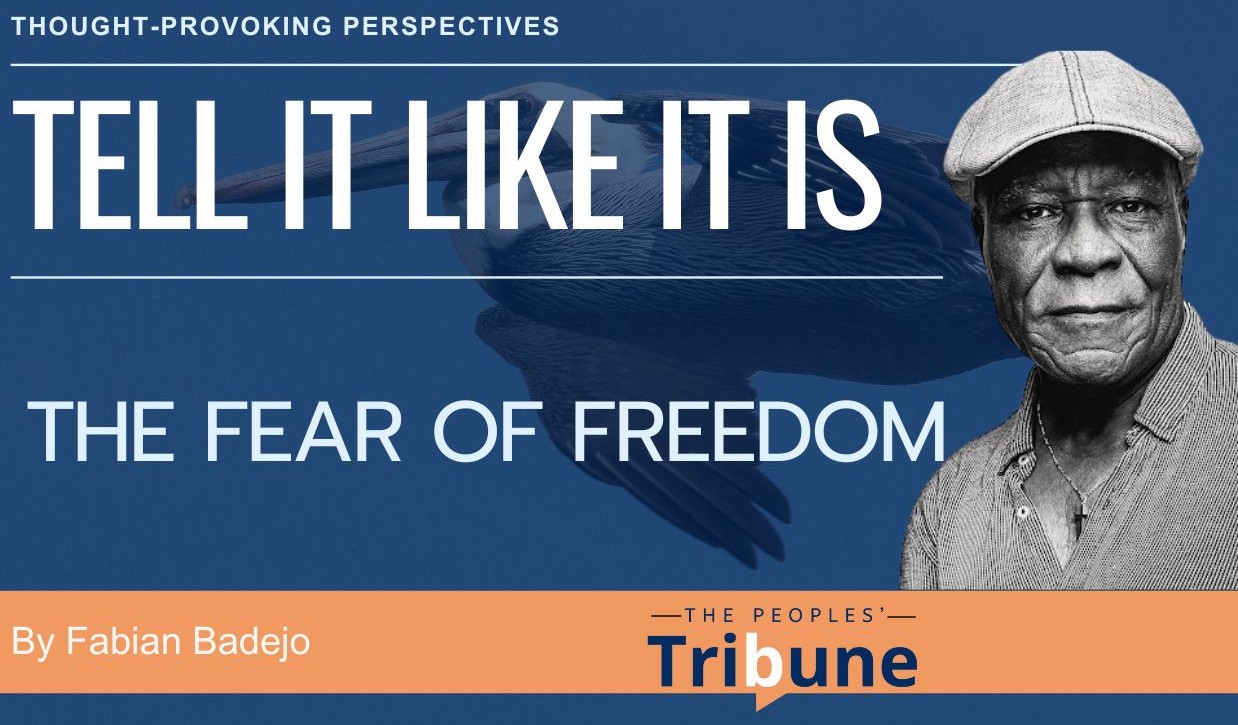Tell It Like It Is: The Fear of Freedom

Emancipation Day has come and gone, but the Flamboyant tree, the Freedom Tree, continues to bloom majestically, as if to remind us that Emancipation is not a one-day event. Perhaps, like the Flamboyant tree, which reaches the zenith of its flowering in July, we should celebrate Emancipation throughout the month, unapologetically, fearlessly, just as our ancestors did in the weeks after the Emancipation Proclamation by Governor Krol in Curaçao could no longer be hidden from them.
Let it be known that we have been commemorating Emancipation Day since that date, not merely in the last 13 years, as some erroneously claim. It was declared an official public holiday on St. Martin (South) in 2012, thanks largely to the initiative of then Minister of Education, Culture, Youth and Sports, Dr. Rhoda Arrindell. To this day, St. Martin remains the only part of the Dutch Kingdom where July 1st is observed as an official public holiday.
This year’s celebrations featured the usual speeches by some of our elected representatives, along with memorable cultural activities. Yet one thing stood out in the official speeches: while there was a general consensus that Emancipation is not yet complete, none offered a clear vision of what must be done to complete the process.
Every Emancipation Day, Bob Marley’s timeless anthem “Redemption Song” echoes through the air, especially the stanza urging each of us to “Emancipate yourself from mental slavery, none but ourselves can free our minds.” These are, in fact, the words of one of our prophets, Marcus Garvey, beautifully set to music by Marley.
But have we truly grasped the meaning of those words? Too often, we repeat them by rote, singing them like a hymn, much like schoolchildren taught to recite without comprehension. The same goes for Father Kemp’s “O Sweet S’mart’n Land” , but that’s a discussion for another day.
Why did Garvey and Marley implore us to “emancipate ourselves from mental slavery,” while emphasizing that “none but ourselves can free our minds”? Simply put, they understood that while physical chains could be broken through collective struggle, the more enduring chains, the ones forged in our minds, require both collective and individual effort to break.
And herein lies our problem. We desire freedom, but only if we don’t have to fight for it. We wait for others to do the work. We wait for a messiah that will never come, to rescue us from our own fear of freedom.
How will we survive if left on our own? As if we haven’t already survived centuries under the most brutal system ever devised to subjugate a people. How can we become independent if we are so small? As if St. Kitts were twenty times larger than us. What will we eat? How will we rebuild after a hurricane? The questions go on. Some reflect legitimate concerns, but all of them overlook a simple truth: freedom, while it is our birthright, is not free. We must shed our fear of it if we are to fight for it as our ancestors did, with courage and conviction.
Fear is a debilitating poison, injected into us through slavery and colonialism. The only antidote to our fear of freedom is freedom itself. But to reach it, we must acquire critical knowledge of our history, of the heroic struggles of our forebears. We must believe in ourselves, in our children, and in our grandchildren. The responsibility for our liberation and our island’s future rests squarely in our own hands.
Sadly, our leaders often lack that belief, in themselves, and in the people. But we cannot lay the blame solely at their feet. We too are missing in action, as a community, as a nation. We continue to feed our fear and tear down those who have dared to shed, or help shed, the chains of mental slavery.
Emancipation Day rings hollow if we continue to shy away from the global norm of political independence. It is meaningless if it excludes the pursuit of Reparations and Reparatory Justice. After all, emancipation brought financial compensation, not for the enslaved, but for the enslavers, who were paid handsomely for the “loss” of their human “property.” Meanwhile, the freed had to labor unpaid for another decade as “apprentices.” How can one be an apprentice at the very work their ancestors had mastered for generations?
Our ancestors did their part. They fought, with everything they had, in every way they could. They ran a difficult race and passed the baton to us. Are we now going to drop it? What will we hand over to our children, a colonized and dependent St. Martin, or a free and independent one?
